简体中文
繁體中文
English
Pусский
日本語
ภาษาไทย
Tiếng Việt
Bahasa Indonesia
Español
हिन्दी
Filippiiniläinen
Français
Deutsch
Português
Türkçe
한국어
العربية
California Cracks Down on Crypto Scams: 42 Websites Shut Down in $6.5M Bust
Abstract:California Attorney General Rob Bonta announced earlier this week that the state had taken decisive action against fraudulent cryptocurrency operations. Authorities successfully shut down 42 scam websites responsible for deceiving investors out of at least $6.5 million.
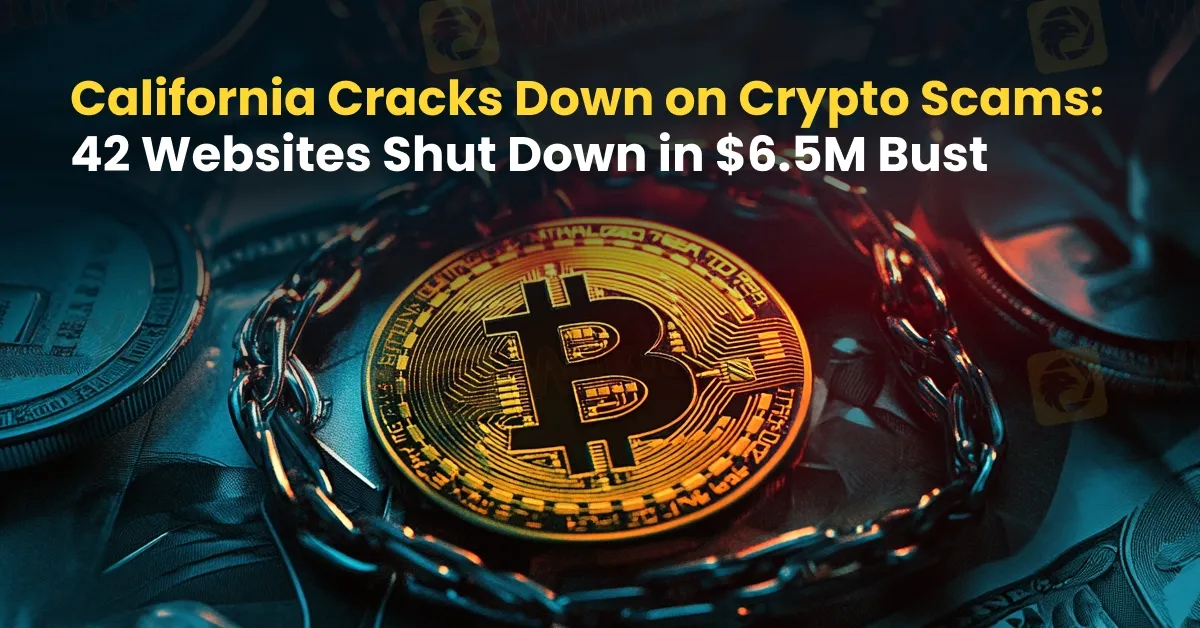
California Attorney General Rob Bonta announced earlier this week that the state had taken decisive action against fraudulent cryptocurrency operations. Authorities successfully shut down 42 scam websites responsible for deceiving investors out of at least $6.5 million.
An investigation by the California Department of Justice (DOJ) revealed that these fraudulent websites primarily engaged in so-called “pig-butchering” scams. This method involves scammers cultivating trust with victims over extended periods, often through social media or unsolicited messages. Once a connection is established, the fraudsters persuade victims to invest in fake cryptocurrency platforms that falsely display substantial returns. Encouraged by these fabricated gains, victims often increase their investments, only to discover that their funds are unrecoverable when they attempt withdrawals.
The financial impact of these scams has been severe, with the average victim losing approximately $146,306. Authorities emphasize that such schemes rely on both deception and emotional manipulation, making it imperative for consumers to remain vigilant when engaging in online investments.
The Department of Financial Protection and Innovation (DFPI) has played a critical role in educating consumers about emerging crypto scams. Commissioner KC Mohseni reaffirmed the agency‘s commitment to increasing public awareness, highlighting the importance of tools like the DFPI’s Crypto Scam Tracker, which helps individuals identify potential threats. The DFPI has also outlined ten key warning signs of fraudulent activity, including unrealistic investment promises, lack of verifiable contact details, plagiarized website content, and high-pressure sales tactics.

In addition to recognizing red flags, regulatory authorities strongly encourage individuals to verify the legitimacy of investment platforms before engaging in financial transactions. Websites that falsely claim regulatory approval or request sensitive financial information without proper verification should be treated with caution.
Before engaging with any online investment platform, individuals must conduct thorough due diligence. Verifying website authenticity is crucial, as fraudulent platforms often mimic legitimate ones to deceive investors. Checking domain registrations, company licensing, and regulatory approvals can help identify potential scams. Engaging only with well-established cryptocurrency exchanges with strong security protocols further reduces the risk of financial loss.
Avoiding unsolicited investment offers is also essential. Scammers frequently initiate contact through social media or text messages, offering lucrative opportunities that seem too good to be true. Regulatory warnings should always be monitored, as financial authorities regularly publish alerts about known fraudulent schemes. Finally, reporting any suspicious activity to law enforcement ensures that fraudulent operations are dismantled before they claim more victims.

When in doubt, download the free WikiFX mobile application to avoid falling victim to schemes like these. WikiFX provides detailed information on brokers, including regulatory status, customer reviews, and safety ratings, allowing users to verify the legitimacy of any investment platform before committing their money. With access to in-depth insights and risk alerts, WikiFX equips potential investors with the resources to make informed decisions and avoid unauthorized or unlicensed entities. By checking with WikiFX, users can confidently protect their savings and avoid the costly traps set by unscrupulous investment syndicates.
You have nothing to lose and everything to gain.

Disclaimer:
The views in this article only represent the author's personal views, and do not constitute investment advice on this platform. This platform does not guarantee the accuracy, completeness and timeliness of the information in the article, and will not be liable for any loss caused by the use of or reliance on the information in the article.
Read more
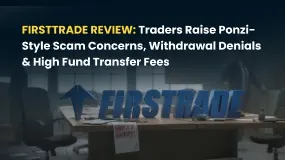
Firsttrade Review: Traders Raise Ponzi-Style Scam Concerns, Withdrawal Denials & More Issues
Have you lost all your capital while trading via Firsttrade? Does the US-based forex broker disallow you from withdrawing funds? Do you have to pay massive fees when transferring funds? Does your trade get affected because of frequent malfunction in the trading app? These have been haunting many traders at Firsttrade. Consequently, many of them have raised complaints online. In this Firsttrade review, we have shared such complaints. Keep reading to know about them.
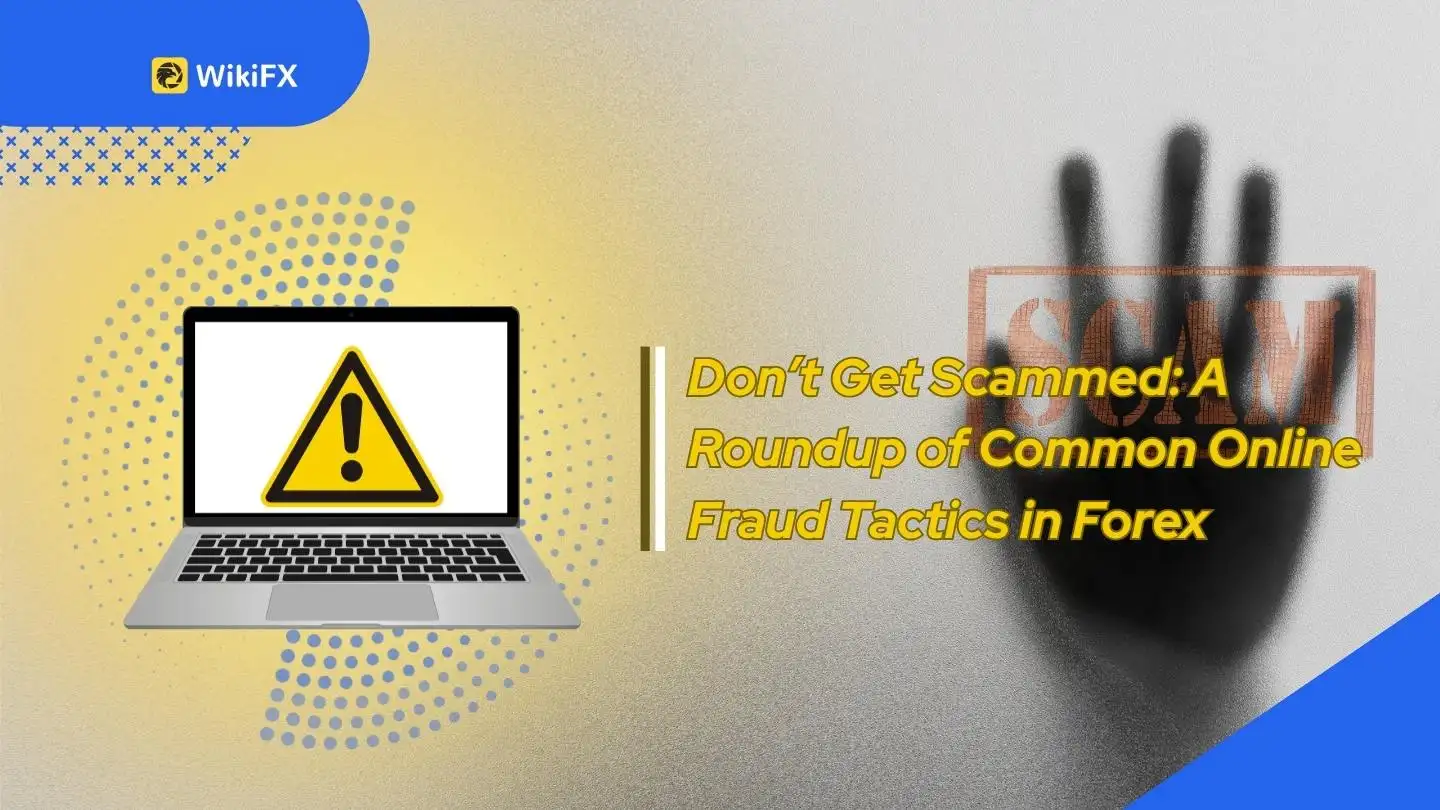
Don’t Get Scammed: A Roundup of Common Online Fraud Tactics in Forex
Forex scams are evolving faster than ever; learn the most common tactics (cloned platforms, fake investment managers, fake recovery services) and how to spot them before you deposit.
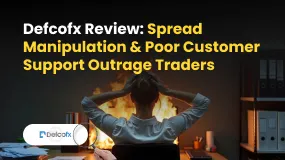
Defcofx Review: Spread Manipulation & Poor Customer Support Outrage Traders
Does the poor customer support service leave you stunned when trading via Defcofx? Do you receive blunt, negative responses from the support team on several trading queries? Does the Saint Lucia-based forex broker pile on the losses for you by manipulating forex spread charges? In this Defcofx review, we have shared some complaints made against the broker. This will further answer your question: Is Defcofx real or fake?
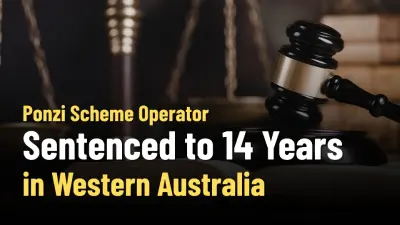
Ponzi Scheme Operator Sentenced to 14 Years in Western Australia
Chris Marco, a Ponzi scheme operator, was sentenced to 14 years for a $34 million investment fraud in Western Australia. Read about the case and its impact.
WikiFX Broker
Latest News
How to Add and Take Out Money from Amillex Broker: A Complete Guide
FCA warning: These Firms are on the list
Ponzi Scheme Operator Sentenced to 14 Years in Western Australia
Dubai VARA Warns Against Vesta Investments
Don’t Get Scammed: A Roundup of Common Online Fraud Tactics in Forex
T4Trade broker Review 2025: Is T4Trade Regulated?
Chicago PMI Beats But Remains In 'Contraction' For Second Straught Year
Annual Sales Of New Vehicles Expected To Hit Only 15.7 Million Units: Cox
MH Markets Overview: Fees, Platforms, and Regulation
Is MultiBank Group Legit or Scam? A 2025 Regulation Review
Currency Calculator



